
 Flash News
Flash News
"Bad sign for democracy"/ Parliament neglects reporting by institutions
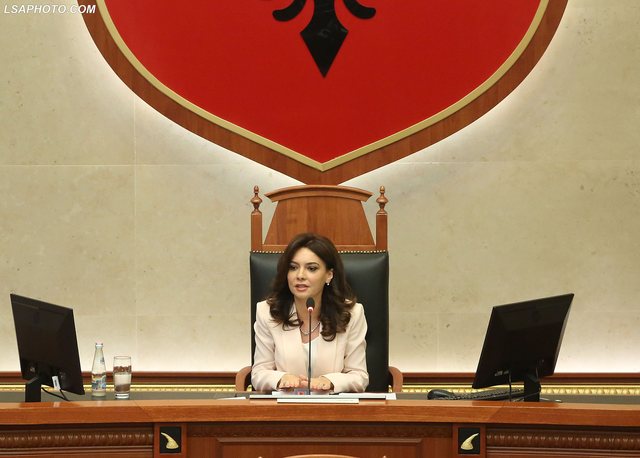
The Albanian Parliament closed the proceedings of the 10th parliamentary legislature on Thursday by voting on a dozen laws proposed by the government, but leaving aside the reporting of independent institutions - constitutional and those established by law - a parliamentary oversight process that had to be carried out within June, according to the legal obligation in the Rules of Procedure of the Parliament.
Dozens of independent institutions that report to the Assembly on the work of the previous year – based on recommendations left by the Assembly and recommendations stemming from the European integration process – failed to perform this functional duty due to the Assembly's negligence.
The process envisaged reporting on the work and status of the sectors for 2024 to the responsible committees and then to a plenary session of the heads of justice system institutions.
The heads of the High Judicial Council, the High Prosecutorial Council, the Special Prosecutor's Office (SPAK), the Prosecutor General, the Inspectorate of Justice, as well as other important institutions such as the Ombudsman, the Supreme State Audit Office, and the Bank of Albania were required to report to the deputies.
Reporting to the Parliament by these institutions is considered an essential democratic and transparent process, where the public has the opportunity to learn about the state of the judiciary, the progress of the fight against crime and corruption, economic issues, etc.
But, even though the institutions submitted the reports according to the legal deadlines and these documents became part of a public consultation, and were even formally included in the Assembly's work calendar for the period June 19 - July 8, the Assembly did not complete this process, leaving it to the new legislature emerging from the May 11 elections, which begins work in September.
Although the delay was apparently attributed to a long break, more than two months, in parliamentary activity with the justification of MPs' engagement in the election campaign, there was no concrete commitment by the Assembly to find a mechanism for the implementation of the reports.
The Speaker of the Parliament, Elisa Spiropali, did not respond to BIRN's request to comment on the consequences of the failure to complete the process for the oversight role of the Parliament and for the very functionality of independent institutions, but during the last parliamentary session she removed responsibility from herself and suggested that the process could be carried out beyond the legal deadlines.
"It is not within the competence of the Speaker of Parliament to determine the calendar of parliamentary committees, I believe that the new parliament will have the legitimacy to convene them and to hear and draft resolutions," said Spiropali, responding to the concern of Democratic MP Bujar Leskaj on this issue.
Procedura ligjore parashikon që pas seancave dëgjimore publike me krerët e institucioneve Kuvendi miraton rezoluta periodike me vlerësime dhe rekomandime dhe i vetmi mekanizëm mbikëqyrje për zbatimin e tyre është raportimi pasardhës vjetor.
Proces formal dhe në dëm të demokracisë
Organizatat e të drejtave të njeriut që monitorojnë punën e Kuvendit e shohin këtë neglizhencë të Kuvendit për të ushtruar në kohë rolin e vet kontrollues si një rrezik për demokracinë e funksionalitetin e institucioneve të pavarura dhe kthimin e këtij procesi në një formalitet.
“Nuk qëndron alibia e drejtueses së Kuvendit së janë përgjegjës komisionet, për aq kohë sa kryesia e Kuvendit është e detyruar të menaxhojë kalendarin dhe axhendën dhe të detyrojë komisionet të fusin në axhendë çështje me interes dhe të mbrojë parlamentarizmin”, i tha BIRN-it, Afrim Krasniqi, drejtor i Institutit të Studimeve Politike.
Duke e cilësuar situatën e krijuar si “paradoksale dhe shenjë e keqe për demokracinë dhe parlamentarizmin”, Krasniqi e lidh këtë sjellje të Kuvendit me kontekstin e rezultateve zgjedhore të majit dhe fitoren e thellë të Partisë Socialiste në pushtet.
“Mazhoranca ka fituar një shumicë dërrmuese të mandateve dhe deri diku është dobësuar i gjithë koncepti i institucioneve të pavarura dhe rëndësia e tyre dhe raporti i tyre me parlamentit dhe vetë funksioni mbikëqyrës i parlamentit”, thekson ai.
Sipas Krasniqit ky është gjithashtu “një mesazh negativ” se si do të jetë legjislatura e ardhshme, -“një mazhorancë solide që e bën të panevojshme rolin e opozitës dhe automatikisht dërgon mesazhin që institucionet e pavarura nuk do të jenë më të pavarura, por do të jenë të cënueshme”.
Edhe Erida Skëndaj, drejtoreshë e Komitetit Shqiptar të Helsinkit, e quan dështim të Kuvendit që të kryejë në kohën e duhur funksionin e tij mbikëqyrës ndaj institucioneve të pavarura.
“Shoqëruar me faktin e dështimit prej kohësh të zgjedhjes së titullarëve të institucioneve të pavarura si Avokati i Popullit apo Komisioneri për Mbrojtjen nga Diskriminimi, kjo dobësoi klimën e llogaridhënies së organit që mban pushtetin ligjbërës që duhet të ishte modeli kryesor për institucionet dhe zgjedhësit, i respektimit të parimeve të shtetit ligjor”, i tha ajo BIRN-it.
KSHH dhe organizatat e tjera u përfshinë me komentet dhe sugjerimet e tyre në procesin e konsultimit publik që ishte i hapur në platformën e Kuvendit deri më datë 23 qershor, por siç thotë Skëndaj, duket se procesi i konsultimit është përdorur si mjet formal për të justifikuar shtyrjen pa afat të raportimit të institucioneve.
“Kuvendi nuk i’u përgjigj me të njëjtën korrektesë e përgjegjshmëri institucionale, aktorëve që konsultuan dhe dhanë mendime për raportet e këtyre institucioneve”, tha më tej Skëndaj duke iu referuar konsultimit.
Although it seems that the process was delayed due to the short time available from the moment of the public consultation until July 3, when the Assembly closed its proceedings, Lorin Kadiu, editor-in-chief of "Citizens Channel", also an organization that monitors the transparency of the Assembly, calls this delay "intentional".
"The Assembly, after the rush to engage in the electoral campaign, chose to enter a long period of recess, neglecting one of its essential functions: monitoring independent institutions," he told BIRN, adding that "this delay is not simply technical, it is a real obstacle to the institutions themselves, to transparency and to the accountability process that was supposed to help concretely improve their work."
All three organizations are concerned that this postponement will result in this important process becoming a formal act in the future.
"A formal and paradoxical situation is being created," says Afrim Krasniqi, according to whom in a parliament where 70 percent of the deputies will be new, they will be held accountable for tasks left by the previous parliament in 2024 and will leave tasks for 2025 when the year ends.
Even for Kadi, the failure to complete the process on time turns it into a formality and has consequences for other democratic processes that the Assembly must exercise.
"Since reviewing these reports is a process that requires time and debate, I believe that this postponement dilutes the impact of the recommendations and turns this exercise into a weightless formality," he says.
On the other hand, according to him, this will also have consequences in the transparency process, as moments when institutions are placed opposite each other in a monitoring function create few opportunities for transparency for the public./BIRN
Latest news


Cost of living increases, inflation rises to 2.4% in June due to food
2025-07-08 12:00:16


Requesting conditional release, Ervin Salianji arrives at the Fier Court
2025-07-08 11:16:36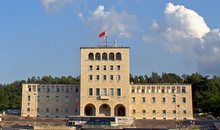
The first phase of university applications begins today
2025-07-08 11:10:52
Fire in Lura, flames endanger the National Park
2025-07-08 10:53:43
Trump warns of 35% tariffs on Serbia and 30% on Bosnia and Herzegovina
2025-07-08 10:37:32
Thethi rooster and the dung cock
2025-07-08 10:24:01

Fire in Dukat endangers Llogara National Park
2025-07-08 10:01:39
International drug search: 36-year-old arrested in Durrës (NAME)
2025-07-08 09:50:48
Thethi, tourists "criticize" modern trend
2025-07-08 09:39:54
Fire on Mount Dukat still active, Llogara National Park at risk
2025-07-08 09:28:12
Veliaj's appeal to be heard today in the High Court
2025-07-08 09:16:02
"Bad sign for democracy"/ Parliament neglects reporting by institutions
2025-07-08 09:04:56
Today's hearing at the Fier Court, Salianji requests conditional release
2025-07-08 08:56:39


Horoscope, what do the stars have in store for you today?
2025-07-08 08:16:19
Weather forecast/ How temperatures will vary throughout the day
2025-07-08 08:02:37
Morning Post/ In 2 lines: What mattered yesterday in Albania
2025-07-08 07:48:30





Marrëdhënia që s’është romancë, por s’është as thjesht kolegiale
2025-07-07 21:39:13
Citizen is asked to pay 2.5 million for a non-existent meter
2025-07-07 21:28:03

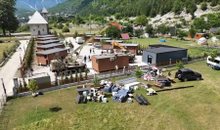


What is the ideal air conditioner temperature in summer?
2025-07-07 20:53:46
GJKKO left him in prison, Meta appeals the decision
2025-07-07 20:38:05
Where is Ronaldo after missing Diogo Jota's funeral?
2025-07-07 20:38:04

Messages from the author who killed Ilaria Sulla in Rome are revealed
2025-07-07 20:20:12
At least 91 dead in Texas floods
2025-07-07 20:12:02
Elbasan, choked by smoke, scorched by conscience
2025-07-07 19:48:16

Swarm of bees attacks citizens in France, 24 people end up in hospital
2025-07-07 19:32:03
Dementia/Hearing loss may be a warning sign
2025-07-07 19:13:06
The decision for Malltez, Gjokutaj: Boomerang for SPAK and the Court
2025-07-07 19:01:08

Former Supreme Court member acquitted of asset concealment
2025-07-07 18:36:40

WIIW expert in Politiko: Brain drain is steadily weakening the Albanian economy
2025-07-07 18:11:41
Heart health is at risk from extreme heat, here's what you should be careful of
2025-07-07 18:10:18
Today Gert Bogdani would celebrate, Edlira Çepani's touching dedication
2025-07-07 17:40:45






The striker severely accuses the Fenerbahce club: They tried to drug me
2025-07-07 16:21:03
A decomposed body is found in Kolonjë, initial suspicions
2025-07-07 16:03:31
Accident in Saranda, car hits motorcycle, one injured
2025-07-07 15:58:56

The most fertile age for men and women
2025-07-07 15:40:52
Locals, Rama candidate in 5 municipalities
2025-07-07 15:32:22
Blushi: Meta's criminal kidnapping, incomparable even to Navalny's in Russia
2025-07-07 15:20:34
Meet the iPhone 17 Pro, the main innovations in design and technology
2025-07-07 15:09:09
Why the release of Abi Malltez does not free him; much less Albania
2025-07-07 15:00:12
‘Lidhjet klienteliste’ të mjekëve mbushin recetat e pacientëve
2025-07-07 14:57:33
Poland imposes border controls with Germany and Lithuania
2025-07-07 14:48:15

Caught transporting firearms from Kosovo to Albania, young man arrested (NAME)
2025-07-07 14:37:47
Theo Hernandez flies to Saudi Arabia for medical check-ups
2025-07-07 14:26:47


Scorching heat, Greece orders mandatory work holidays
2025-07-07 13:54:25




Trump expects Netanyahu to discuss Gaza ceasefire
2025-07-07 12:54:27

GJKKO releases Jamarbër Malltezi from house arrest
2025-07-07 12:35:02
Tourism among contrasts
2025-07-07 12:31:01
IKMT action in Theth, starts demolition of unauthorized constructions
2025-07-07 12:24:18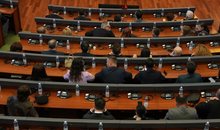

The Tirana-Kamëz line is destroyed by urban fire
2025-07-07 12:00:24




Poor direction!
2025-07-07 11:16:01


Rama to gather the country's mayors on July 9
2025-07-07 10:43:31
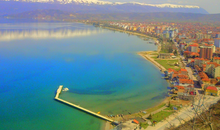
Ohrid Natural Park on the way to UNESCO's "black list"
2025-07-07 10:25:58

Registrations for the new school year begin in e-Albania
2025-07-07 09:59:09
KAS decides the "fate" of the elections in four districts of the country today
2025-07-07 09:50:51
Rama does not give up on Vlora, visits the municipality again
2025-07-07 09:39:11

